Maintaining a good relationship with your parents when you’re an adult can be tricky. Parents say they want the best for their children, but sometimes they can cross boundaries without realizing it. And, before you know it, you act in the heat of the moment and let them know how you truly feel about their controlling behavior.
Something similar happened to the OP here. The user u/Short_Fig7734 shared a story of how they dealt with constant criticism from their parents. One fateful birthday dinner was the breaking point for OP, the self-proclaimed ‘nepo kid.’ They decided to literally pay back the parents for all their hard work and investment.
Some parents might feel entitled to give unsolicited advice to their children because they gave them a financially sound life

Image credits: YuriArcursPeopleimages / envato (not the actual photo)
This person decided to get even with their parents after hearing constant criticism by writing them a fat check

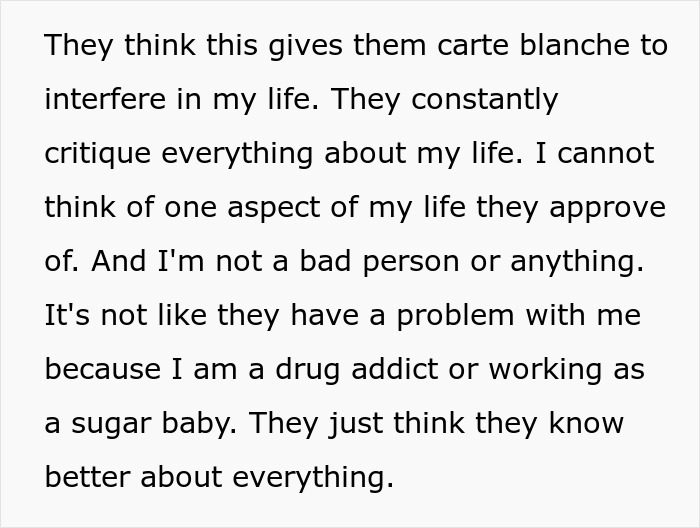
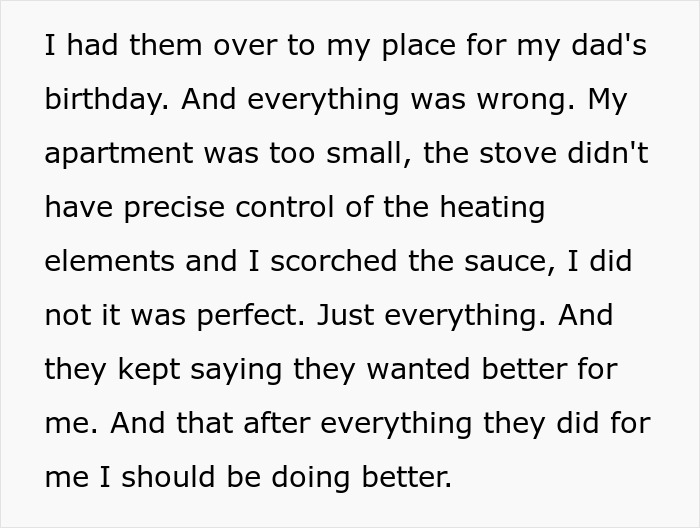


Image credits: voronaman111 / envato (not the actual photo)
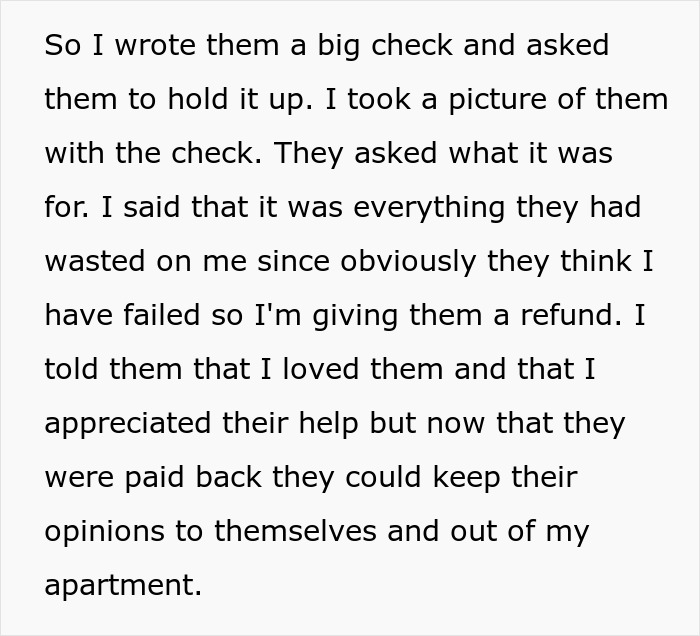
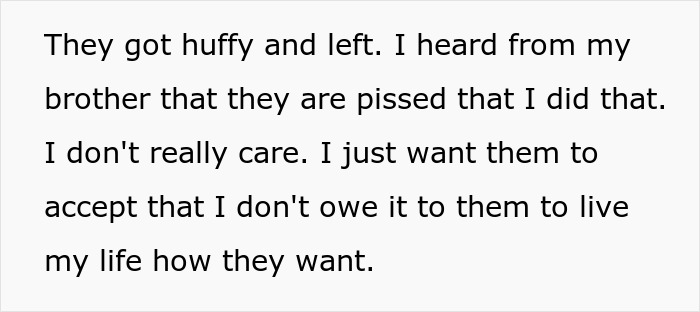
Image credits: Short_Fig7734
Parents’ controlling behavior can be the cause of low self-esteem and social anxiety

Image credits: Keenan Constance / pexels (not the actual photo)
When you’re a kid, your parents can do no wrong. You trust them to tell you what’s right and what’s wrong and to guide you through life’s tough decisions. They’re like an omnipotent, omnipresent being in our lives that we look to for advice.
Parents always say they want the best for us, but that can often manifest in ways we don’t particularly like. They might critique our career choices, our partners, our living situation, and even our own abilities as parents. Psychologists say that parents who are critical of their children start doing it in their children’s childhood.
Researchers have found that kids with parents who pressured them with high expectations in their teenage years might grow up to be perfectionists. That applies not only to achievements in academic and professional life. It also means that instead of setting goals for yourself so you can take pride in your success, you may do it out of fear of inadequacy.
Psychotherapist Heather Garbutt told Stylist that it’s rarely about you. “It’s about their way of being rather than anything to do with you,” she explained. Psychologist Gwen Randall-Young writes that parents might believe that even their adult children still need parenting. “They may feel that because you are their child, that gives them the right to take you to task for all variety of things.”
It might come from a good place, but it results in low self-esteem, social anxiety, and defensiveness. It can also strongly impact our own adult relationships. And, of course, there are those adult children who strive to please their parents no matter what. The catch? It’s futile because those kinds of parents will most likely never be pleased.
Adult children should set clear boundaries with their overbearing parents

Image credits: SHVETS production / pexels (not the actual photo)
Because critical comments from parents can greatly impact us as adults, what can we do to make them stop? Psychology experts advise communicating as a first step. It’s important to let them know you understand they’re doing this out of love.
However, you have to make them understand that their behavior is making you feel bad. Licensed counselor Emily Griffin suggests saying, “Please do not make comments about my parenting, career, financial situation, etc.” or “Please ask me if I want feedback before giving it.”
If communicating your needs doesn’t work, most professionals recommend setting clear boundaries. “Developing personal boundaries about how much negativity to absorb is self-protective and allows the adult child to exercise their personal power and control,” licensed professional counselor Elizabeth Brokamp writes.
You can set boundaries with parents by letting them know what will happen if they continue their behavior. One example can be saying “If you make another critical comment about my career choices again, I am going to leave.”
It’s important to enforce this set boundary and follow through. If they still continue to make critical remarks and we do nothing, we let them know in a non-verbal way that we’re okay with such behavior.
“If you have critical parents, they may not be the best sources of guidance or support at a time of challenge. If you want guidance or advice, it’s easier when it is not wrapped in a critical bow,” clinical psychologist Dr. Ramani Durvasula writes.
The majority of commenters believed the OP was not the jerk
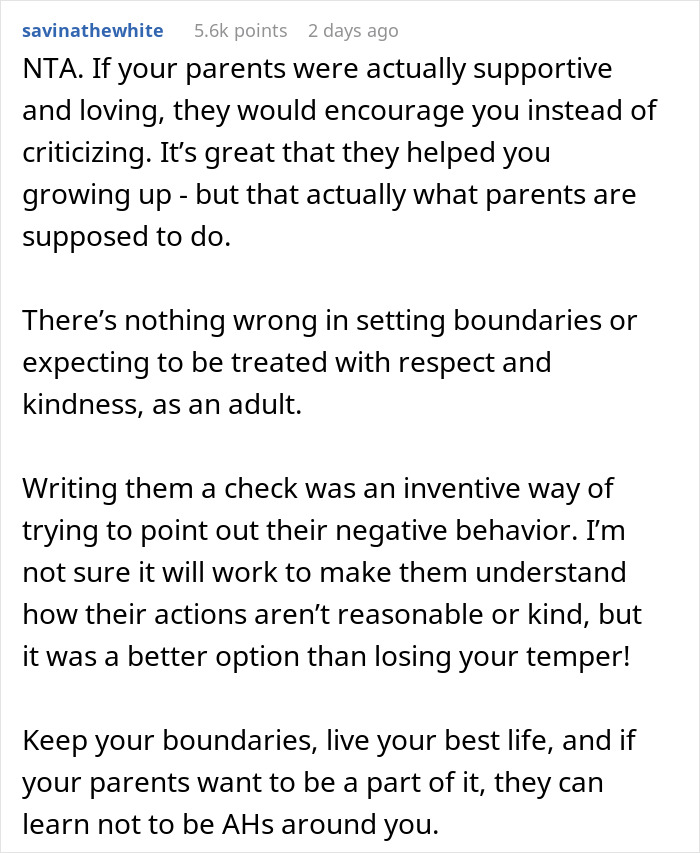
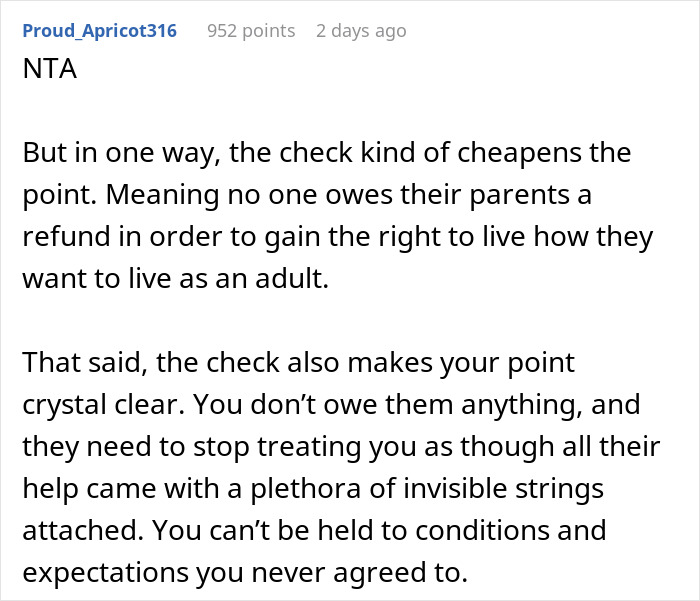
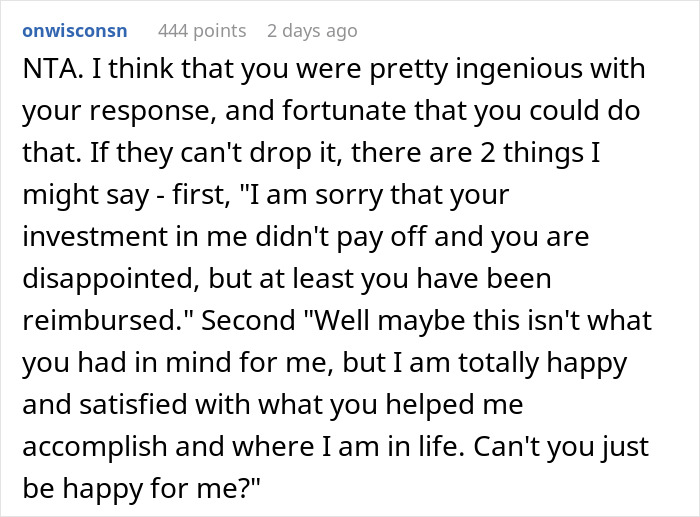



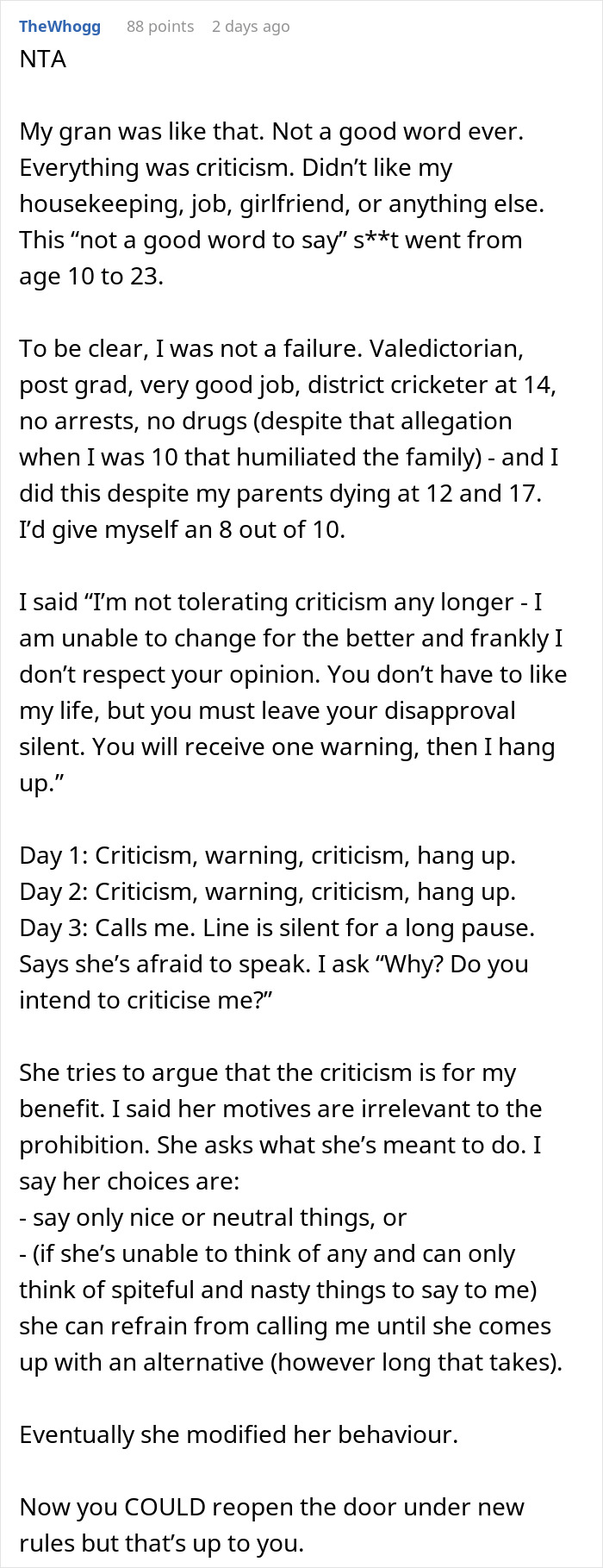
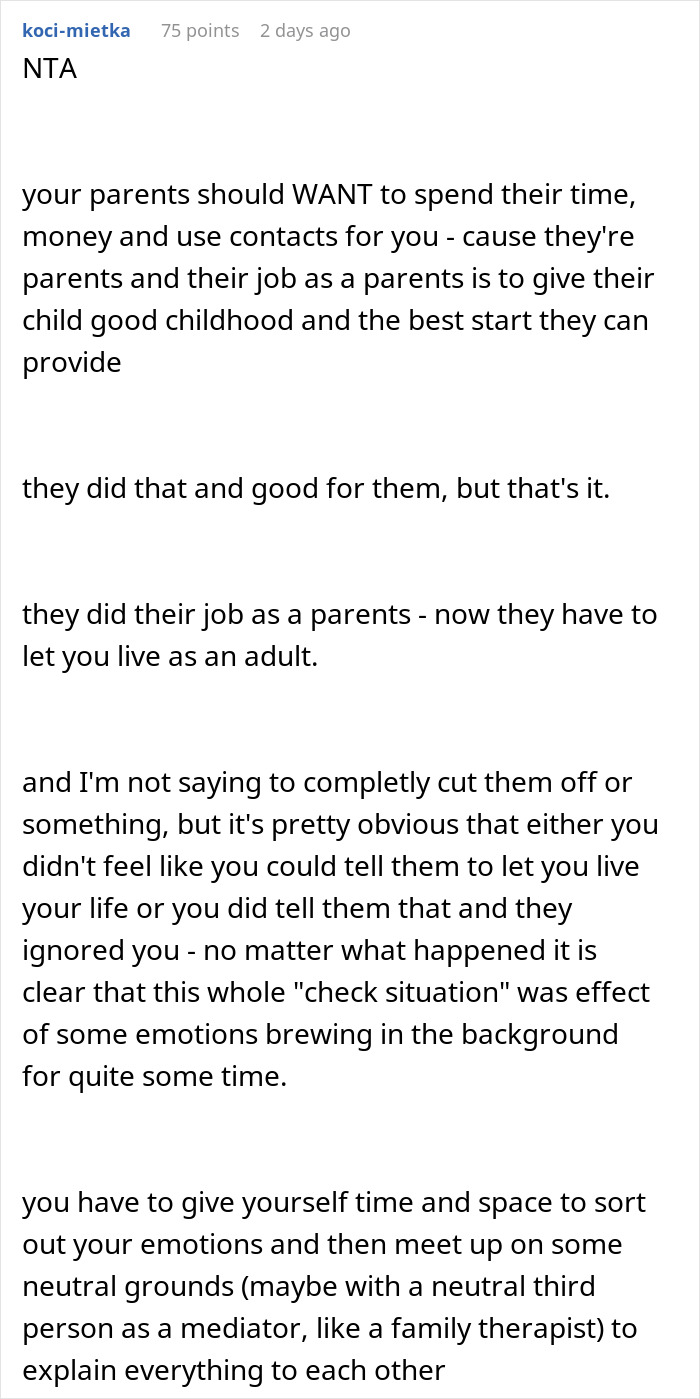
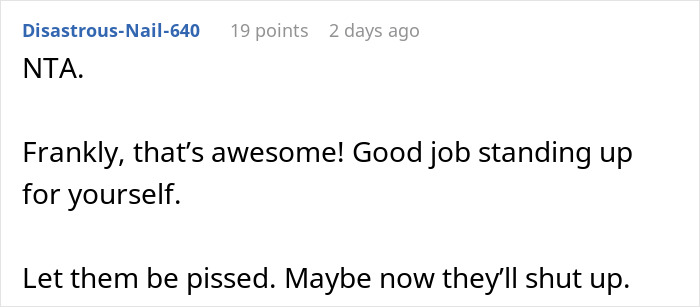


Others said ‘YTA’ and called for better communication on OP’s part
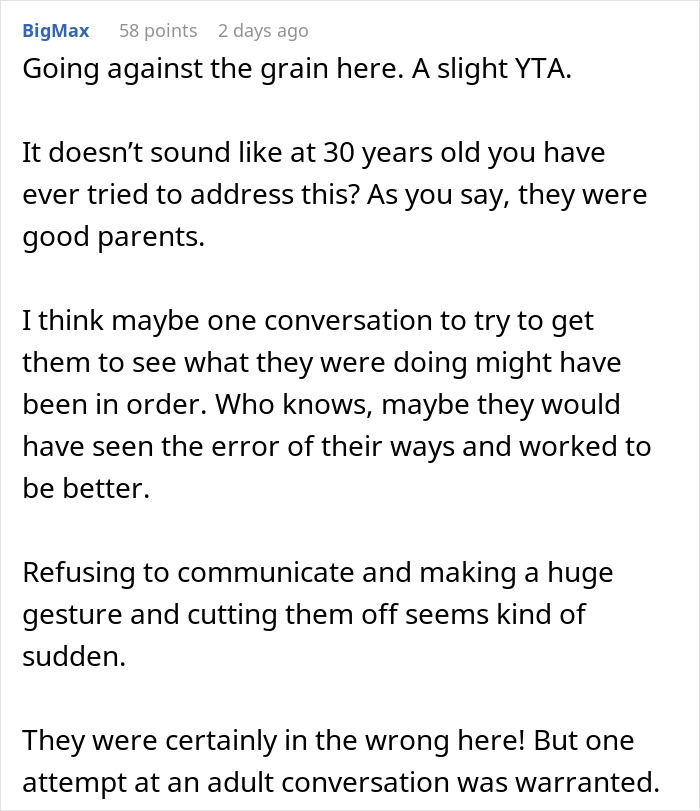
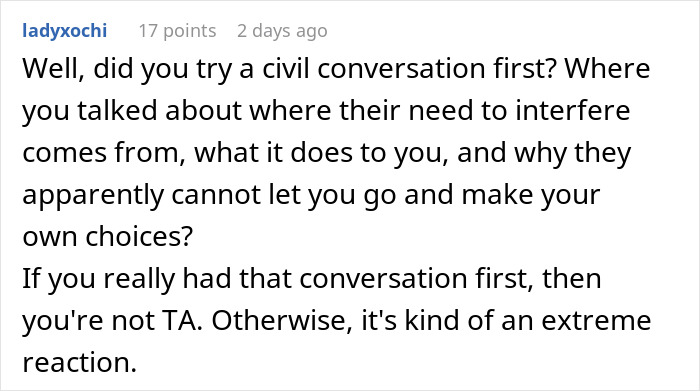
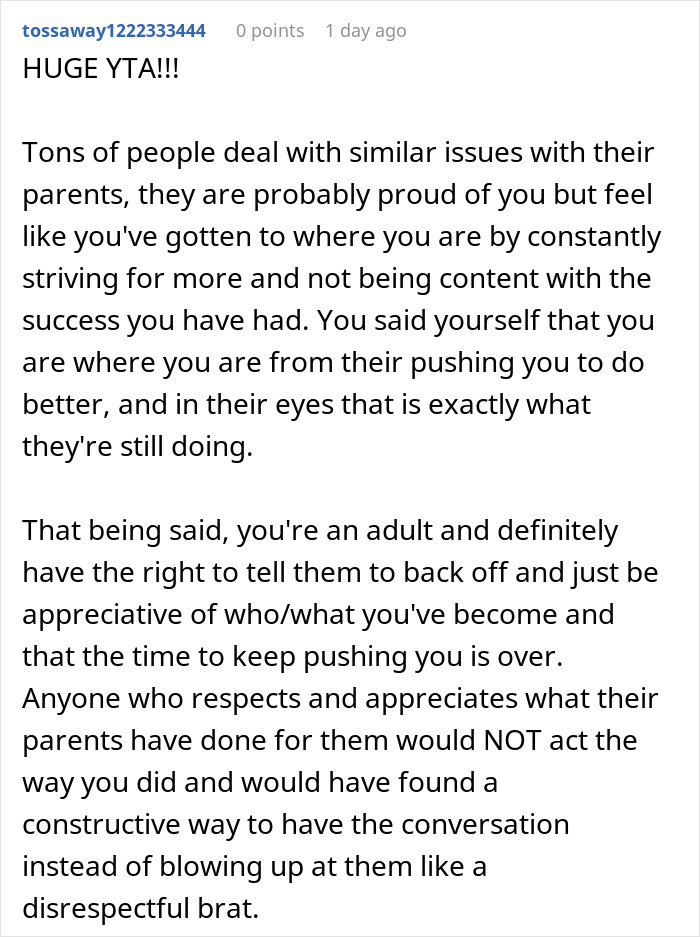

And some netizens thought that everyone here could do better











